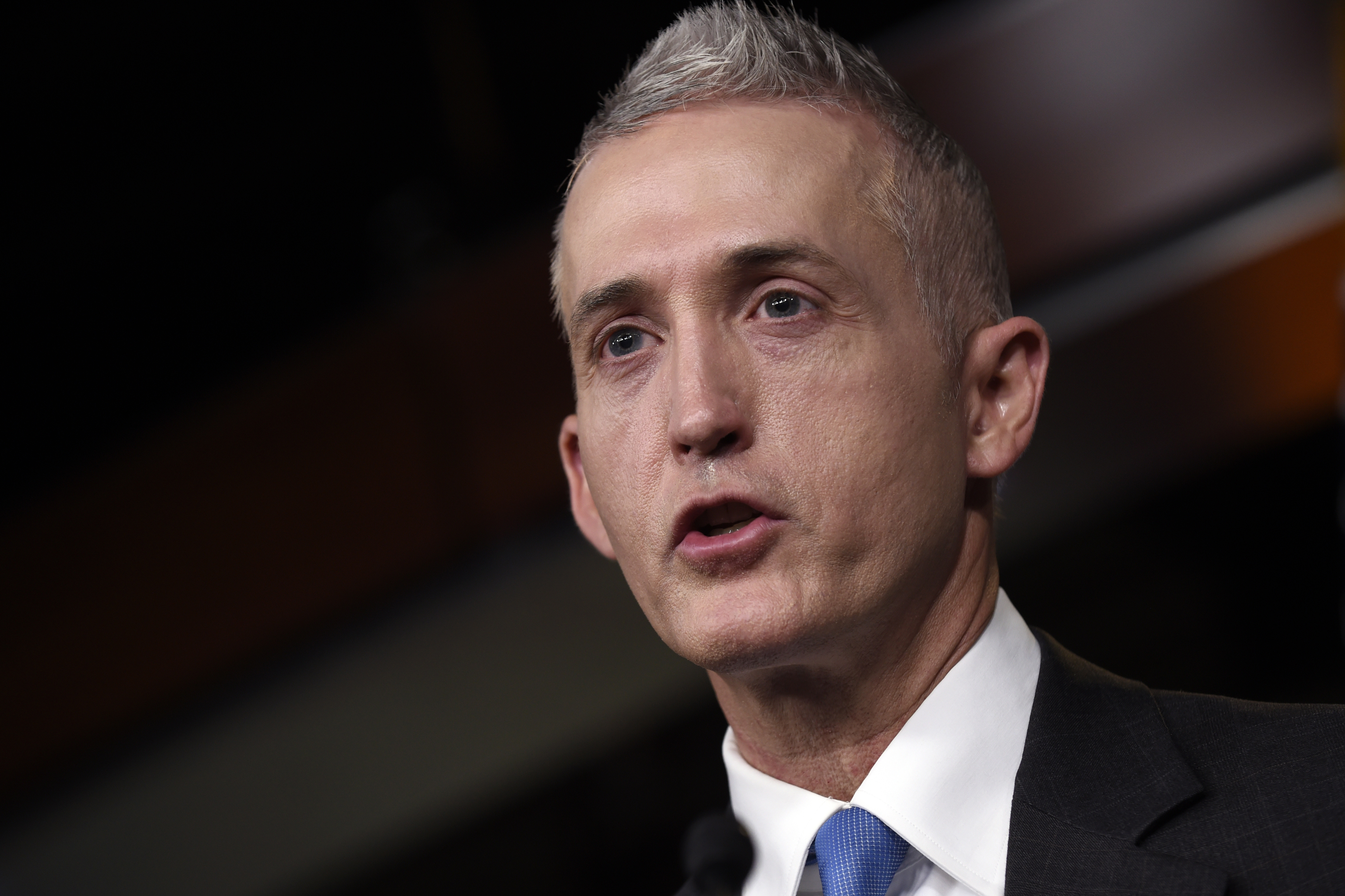One of the most easily disproven lies in Benghazi committee chairman Trey Gowdy’s recent letter defending his interminable investigation had to do with the committee’s propensity to spring leaks. Writing to Rep. Elijah Cummings, the committee’s ranking Democratic member, Gowdy huffily denied that anyone with an (R) next to their name had ever fed information to reporters. “Further, it is you, not the Republicans, who has selectively leaked information to promote your own false narrative – that this Committee is political – or protect Democrat [sic] political figures,” Gowdy wrote.
This is laughably false. It seems that every time a high-profile witness testifies before the committee, cherry-picked details of what they said are immediately blasted out to reporters, who credit those leaks to Republican sources familiar with the testimony. Gowdy himself tacitly acknowledged that Republicans associated with the committee had disseminated inaccurate information about Hillary Clinton’s emails to reporters. There is no legitimate basis to claim that the committee has not been a source for scurrilous, politically motivated leaks.
But Gowdy has to make this claim because he’s staked the credibility of his investigation on the absence of those types of leaks. “Serious investigations do not leak information or make selective releases of information without full and proper context,” Gowdy wrote in his preface to the committee’s interim progress report. The chairman is not about to admit that his investigation, by his own standard, is a farce, so he clings to this fiction to maintain the illusion of credibility.
Unfortunately for Gowdy, it’s getting harder and harder for observers to suspend disbelief and play along with the Benghazi committee’s claims to seriousness and impartiality. Kevin McCarthy’s scandalous recognition of the committee’s true political purpose has now been echoed by yet another Republican in Congress, who went on the radio this week and said the committee was “designed to go after people and an individual, Hillary Clinton.” Gowdy also has to deal with a disgruntled former investigator who says he was fired for resisting the committee’s focus on Clinton, and who also accuses Gowdy and his staff of lying and breaking the law.
But, of course, the Benghazi committee’s credibility depends largely on how it’s treated by the reporters who receive the leaks that Gowdy denies are happening. As James Fallows writes in The Atlantic, these problems within the committee have existed for some time, but the media was slow to recognize them or allow them to color its treatment of the back-channel information they received (even as those stories fell apart under scrutiny). It’s only recently, with the string of gaffes and damaging revelations, that the Benghazi committee’s credibility has become a topic of broader discussion within the media. Basically it became too much of a problem to keep ignoring.
We’ll probably found out very soon how this shift in perceptions will affect coverage of the committee, if it changes at all. Top Clinton aide Huma Abedin is going to sit down for closed-door testimony with the committee tomorrow, according to – ahem – “a GOP source familiar with the committee’s activities.” If patterns hold, selected excerpts and characterizations of Abedin’s testimony will start leaking from the committee probably before she’s even finished testifying. And what happens at that point? Reporters and pundits have spent the past two weeks discussing the committee’s nakedly partisan agenda and the damage inflicted to its reputation. And they’ve been told by Trey Gowdy that Republicans absolutely do not leak information about witness testimony to the press. What will happen when they’re confronted once again with salacious little snippets of context-free information about a Hillary aide’s testimony?
My guess is that they’ll treat it with the same credulity and Drudge-siren enthusiasm that they have in the past. There’s still juicy Clinton “scandal” material to be had, and the Benghazi committee’s obvious and undeniable bad faith won’t be enough to discourage yet another round of stories about the “drip drip drip” nature of the Benghazi/email controversy.

